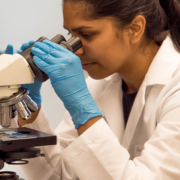Landmark Tool Developed For Diagnosing Inflammatory Breast Cancer



CONTACT: Amanda DeBard
Susan G. Komen
972-701-2131
adebard@komen.org
Collaboration led by Susan G. Komen, The Inflammatory Breast Cancer Foundation and the Milburn Foundation Advances Understanding of Disease Aimed to Improve Treatments, Avoid Delays in Treatment and Misdiagnoses for Patients
DALLAS – February 15, 2022 – A first-of-its-kind tool may be able to help doctors better diagnose inflammatory breast cancer (IBC). The novel tool and the findings of the analysis have been recently published in Breast Cancer Research and Treatment.
The tool was developed through a collaborative effort between Susan G. Komen, the Inflammatory Breast Cancer Research Foundation and the Milburn Foundation, which brought together a team of leading breast cancer experts including clinicians, researchers and IBC patients.
“IBC has historically been difficult to diagnose and no changes to diagnostic approach have been made since the 1960’s. It is a rare and aggressive type of breast cancer that develops rapidly and can easily be confused with a breast infection and often goes underdiagnosed or misdiagnosed,” said Dr. Reshma Jagsi, lead author, Komen Scholar and radiation oncologist.
Before the development of this tool, IBC lacked a formal, objective medical definition and diagnosis was often delayed, misdiagnosed or missed. IBC usually presents as swelling or redness of the breast, and not a lump, so it can be missed on a mammogram.
As the team began their work, it became evident that without a clear definition of IBC that included all the characteristics of this complicated disease, accelerating research would continue to be a significant challenge.
“If you want to study a disease, you have to ask, ‘What causes the disease and is this treatment better than that treatment. It’s harder to answer those questions if you haven’t clearly defined the disease,” said Dr. Kathy Miller, senior author, Komen Scholar and medical oncologist. “It sounds so simple, but having a diagnosis really is the first step toward tackling the problem.”
The group identified “defining characteristics” – including clinical, pathologic and imaging features – of IBC that led them to develop a quantitative scoring system for diagnosis. The system, or tool, is intended to increase diagnostic accuracy, predict outcomes, guide treatment decisions and inclusion criteria for clinical trials.
This tool will also enable researchers to study the biology of IBC and make discoveries to advance progress towards personalized care for all breast cancer patients.
“Komen has been able to see further into the future about how this definition isn’t just about writing something in a dictionary. This is about something that is essential to undergird future research,” added Jagsi.
IBC is aggressive and can spread quickly, resulting in approximately 30 percent of patients being diagnosed at stage IV, or with metastatic disease, meaning their breast cancer has already spread to other parts of their body.
Susan G. Komen, the Inflammatory Breast Cancer Research Foundation and Milburn Foundation raised more than $1.4 million in a fundraising campaign last year to support the IBC cohort and the research that was recently published.
“With aggressive breast cancers like IBC, patients need more treatment options, and they need them now. This collaboration is helping us get closer to finding more effective treatments for a type of breast cancer that is difficult to diagnose and treat,” said Victoria Wolodzko, Senior Vice President of Mission at Susan G. Komen.
“This partnership illustrates our continued leadership in funding critical IBC research,” said Bryon Davis, CEO of the Milburn Foundation. “The impressive results of our campaign have helped us reach this key milestone. Working with Susan G. Komen and the Inflammatory Breast Cancer Research Foundation, we brought together an exceptional team to help define a path forward in the fight against IBC.”
“Patient advocacy is about taking an active role in defining the critical conversations that will accelerate research discoveries and drive results for patients,” said Ginny Mason, Executive Director of the Inflammatory Breast Cancer Foundation. “In our more than 20 years of work in IBC patient advocacy and research, this partnership with Susan G. Komen and Milburn is critical to push key issues forward.”
Susan G. Komen, the Inflammatory Breast Cancer Research Foundation and Milburn Foundation continue to raise funds to support ongoing research studies to validate the new scoring system.
The next step is to perform further studies to validate the scoring system.
Co-authors along with Dr. Jagsi and Dr. Miller include: G. Mason, B.A. Overmoyer, W.A. Woodward, S. Badve, R.J. Schneider, J.E. Lang, M. Alpaugh, K.P. Williams, D. Vaught, A. Smith and K. Smith.
About Susan G. Komen®
Susan G. Komen® is the world’s leading nonprofit breast cancer organization, working to save lives and end breast cancer forever. Komen has an unmatched, comprehensive 360-degree approach to fighting this disease across all fronts and supporting millions of people in the U.S. and in countries worldwide. We advocate for patients, drive research breakthroughs, improve access to high-quality care, offer direct patient support and empower people with trustworthy information. Founded by Nancy G. Brinker, who promised her sister, Susan G. Komen, that she would end the disease that claimed Suzy’s life, Komen remains committed to supporting those affected by breast cancer today, while tirelessly searching for tomorrow’s cures. Visit komen.org or call 1-877 GO KOMEN. Connect with us on social at www.komen.org/contact-us/follow-us/.
About Inflammatory Breast Cancer Research Foundation
Since 1999 the Inflammatory Breast Cancer Research Foundation (IBCRF) has been leading the way in improving the lives of those touched by inflammatory breast cancer (IBC) through the power of action and advocacy. This is accomplished by tenaciously fostering innovative research, creatively educating stakeholders, and tirelessly advocating for both current patients and IBC survivors.
As a web-based non-profit, IBCRF relies on its dedicated volunteers across the country. Guided by the Medical Advisory Board, a group of extraordinary oncology professionals, IBCRF has funded patient-focused IBC research resulting in new discoveries as well as clinical trials. Learn more at www.ibcresearch.org or call 1-877-stop ibc. On social media? Join us on Facebook and Twitter (@IBCResearch).
About Milburn Foundation®
The Milburn Foundation is a private foundation that structures creative strategic partnerships with both public charities and for-profit companies to drive philanthropic innovation for breast cancer research and more. The Milburn Foundation was born out of a father’s love for his daughter when she was diagnosed with Triple Negative Inflammatory Breast Cancer. Milburn is the proud recipient of the 2016 Susan G. Komen Reach Award (for fundraising innovation). Organizations interested in inventive Corporate Social Responsibility (CSR), Venture Philanthropy, Impact Investing or Activist Philanthropy initiatives should contact us to learn more about how our donations can be coupled with a strategic partners’ objectives to amplify impact. Find out more or contact us by visiting TheMilburnFoundation.org.





